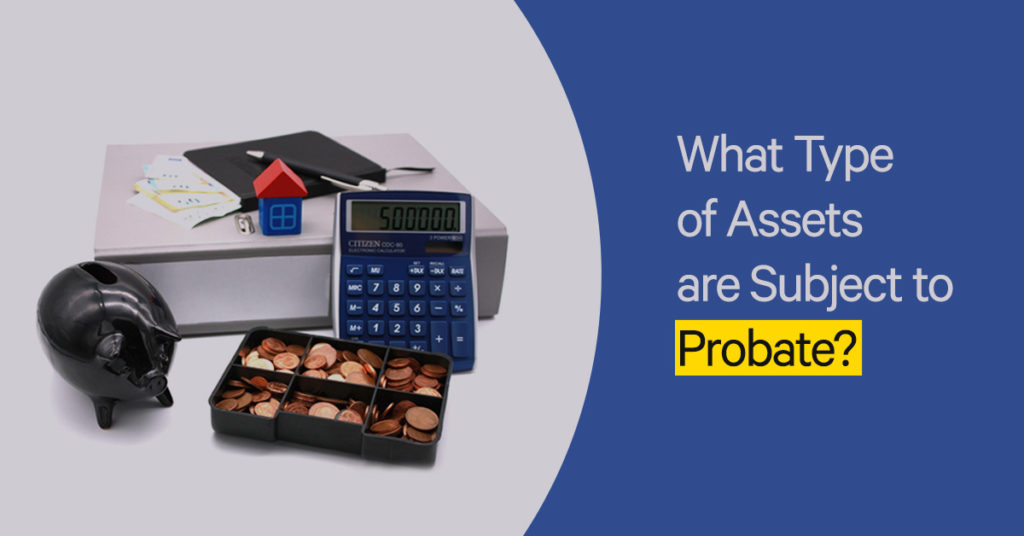
In England, the term probate is used in order to describe both the legal and financial process involved in dealing with the money, possessions and property of someone who has passed away. Throughout this process, the executor of the will has to prove that the will is valid, confirm that they have the authority to administer the estate, settle liabilities and distribute the assets to the correct beneficiaries. Not all assets are subject to probate, it comes down to what that asset actually is and the means by which it was owned by the deceased. This article is going to talk in more detail about the assets which are subject to probate.
Common Misconceptions
There is a common misconception that every asset which is contained within an estate is going to be liable to probate. This is not the case. There are a lot of instances where probate is not necessary for assets, it all comes down to what type of asset it is and how it was owned.
Assets That Don’t Require Probate
So, what are some of the assets that do not require a grant of probate? They include but are not limited to some of the following:
- Jointly Held Assets
These are the assets which are held jointly by the deceased and another individual who is still alive. It’s most commonly seen in married couples but that doesn’t always have to be the case. One of the most common instances is a bank account, if a bank account is being held in joint names and then an account holder dies, the account doesn’t form part of the estate and instead the whole thing is transferred over to the surviving account holder. A death certificate is usually required when doing this.
Another common example of a jointly held asset is property. A lot of couples, when buying a house together, will buy it as joint tenants. When this is the case they each own the property jointly and share it. If they are joint tenants then the property simply passes on to the surviving owner. If they were tenants in common then this isn’t the case and the percentage which was owned by the deceased forms part of the estate.
- Low Value Assets
If an asset doesn’t have a very high value (usually £500 or less) then a grant of probate isn’t going to be required. You tend to find that different banks and building societies have their own thresholds which vary but a small value probably isn’t going to require any kind of probate.
Assets Which Require Probate
Despite the above, it is common for assets to require probate, meaning whoever is executing the will is going to be responsible for obtaining a grant of probate. This grant of probate is going to be a legal authority which gives the executor of the will the power to sell said asset. Some of the most common assets that require probate include the following:
- Assets In the Deceased’s Sole Name
If anything was owned solely by the deceased then it is going to require probate. The most common example of this is the deceased’s property, where if just the deceased owned the property or if it was part of a tenants in common agreement, then a grant of probate will be necessary before it can be sold or transferred. Some of the other common examples of these kinds of assets include the likes of bank accounts, building society accounts, bonds and shares.
- Investment Products
There are a variety of different forms that investment products could take which include the likes of an investment portfolio that contains a number of different assets. If this is the case and the executor wants the investment company to pay out to the Estate then it’s more than likely that a grant of probate will be required.
- Life Insurance Policies
If the deceased had some kind of life insurance policy in place and had nominated someone in their Will who they would like to benefit from this upon their death then a grant of probate isn’t going to be required. That being said, if the individual had not nominated anybody to benefit from the payout of life insurance then the policy will form part of the estate as a whole, which means that a grant of probate will be required.
- Foreign Assets
If the deceased had any assets which were held outside of England and Wales then chances are a grant of probate is going to be required. If this is the case then it is recommended that you seek specialist advice not only for this country but also for the country where the assets are being held. There are likely going to be some strict legal requirements that have to be met when dealing with the asset as there will be tax liabilities and implications from both countries that should be dealt with.
- Business Assets
Finally, if the deceased had any kind of business asset within their estate then it is very likely that there is going to have to be a grant of probate required for this asset to be dealt with. Usually, business assets which are relevant in a Will belong to a family business but it can vary on a case-by-case basis.
Do You Need Help with Probate?
If you currently need help with probate then you should be sure to get in touch with experts who are going to be able to assist. The process can be a relatively tricky one and as such it is important that you are on top of things throughout. Probate Online will be able to help you throughout the process and provide you with advice on what the best way forward is. If you have any questions or require any further information about what we can do for you then do not hesitate to get in touch.
